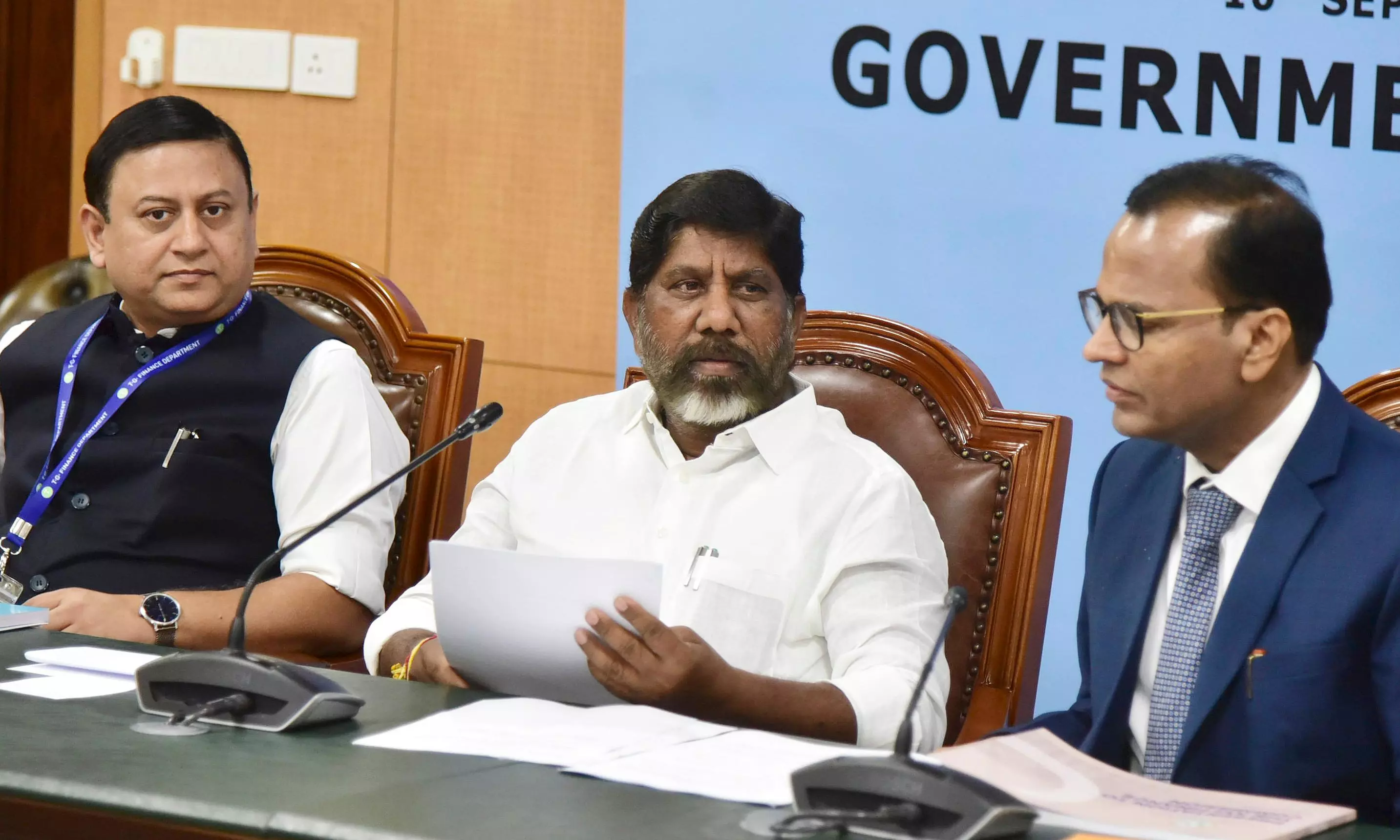Telangana Seeks Autonomy in Using Central-Sponsored Schemes

Hyderabad: Deputy Chief Minister Mallu Bhatti Vikramarka on Tuesday urged the 16th Finance Commission to ensure that states get more fiscal autonomy to implement Centrally-sponsored schemes (CSS), to tailor them to their own developmental priorities. Bhatti pointed out that while CSS may have merit in specific contexts, their rapid expansion into sectors primarily governed by state governments had restricted the flexibility of states.
He criticised the "homogeneous guidelines" imposed by the guidelines for the schemes, which, according to him, limited the states' ability to adapt programmes to their unique circumstances.
Bhatti, the finance minister, was making a comprehensive address before the 16th Finance Commission here on Tuesday, and laid out the state's pressing financial concerns and broader national fiscal issues. He highlighted the challenges posed by the CSS and stressed the need for more fiscal autonomy for states.
Bhatti underscored the gravity of Telangana's fiscal situation, revealing that the state was grappling with a debt burden of Rs 6.85 lakh crore. While this debt has facilitated substantial investments in infrastructure, a significant portion of the state's resources was being consumed by debt servicing. He requested the commission's support in restructuring the debt or providing additional financial assistance to free up resources for further development.
Bhatti advocated for an increase in the share of states in Central taxes from the current 41 per cent to 50, arguing that the rise in cesses and surcharges, which are not shared with states, had reduced their overall share of the gross tax revenue.
“Increasing the vertical devolution will give states the fiscal space they need to strengthen welfare programmes, address infrastructure gaps, and prioritise local development,” he said, emphasising that this request would benefit all states, promoting a cooperative federal structure.
Highlighting Telangana's distinctive economic and historical context, he stressed that while the state's per capita income may be high but wealth distribution remained unequal. These disparities, he noted, had fuelled the statehood agitation, and they persist even after Telangana's formation.
He expressed concern that any formula reducing devolution to states based on per capita income would handicap Telangana’s efforts to reduce inequities.
Bhatti proposed revisiting the use of "per capita income distance" as a key metric in horizontal devolution, suggesting that a more balanced formula could include a 50 per cent weightage on GSDP contribution, thereby encouraging states to focus on economic growth and value creation.
In his closing remarks, Bhatti addressed the national debate around welfare programmes, often criticised as "freebies." He argued that initiatives like Rythu Bharosa, farm loan waiver and food subsidies are essential to ensuring economic stability for vulnerable communities. “These are lifelines for our vulnerable communities,” he said, urging the commission to recognise such expenditures as necessary investments in social welfare.

